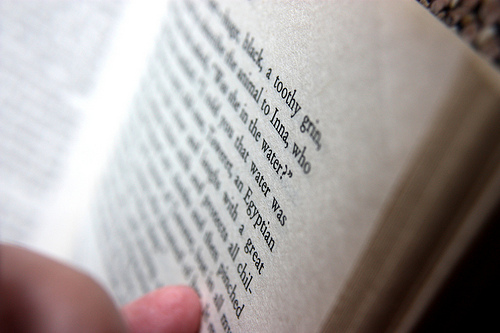The warm light drew me into the Richardson Library on a freezing Thursday night. That and the email notifying me of the new fiction edition of DePaul’s Undergraduate Reading Series taking place inside. I was eager to attend the event, because the business of Autumn Quarter has made finding time to read a good novel nearly impossible. I was expecting to bump into a host of fellow English students and book-lovers, but I didn’t expect to see so many UCWbLers involved. Of the five students who read, two of them were peer writing tutors, and many of the audience members were UCWbLers too. It got me thinking. What do UCWbLers bring to fiction?
Before I began at the UCWbL, I believed consuming and creating fiction to be a completely solitary experience. Fiction was meant to be read and written alone. It was an art reliant on personal interpretation. I thought a person’s reading of and reaction to a story was fixed, and only if they wished to share that reaction with a friend could it become anything close to collaborative.
Seeing UCWbLers at the event reminded me that fiction can be created and received in groups. I found my reaction to the readers was different sitting in the audience with fellow tutors than it might be if I came to the event before I began at the UCWbL. I considered the process the authors might have gone through in writing their stories. I wondered what kinds of revision they did. I questioned whether the authors, as they read, were evaluating our reactions out in the audience – maybe noticing places they got laughs they didn’t expect, drawing their attention to parts of the story they’re interested in spending time on.
UCWbLing has changed the way I consider fiction in an awesome way. Reading and writing stories doesn’t always have to be an activity to be done in ugly sweatpants hidden away from the rest of humanity. It can be more collaborative than I thought.
How does being a peer writing tutor affect your fiction reading or writing?
Discover more from UCWbLing
Subscribe to get the latest posts sent to your email.


